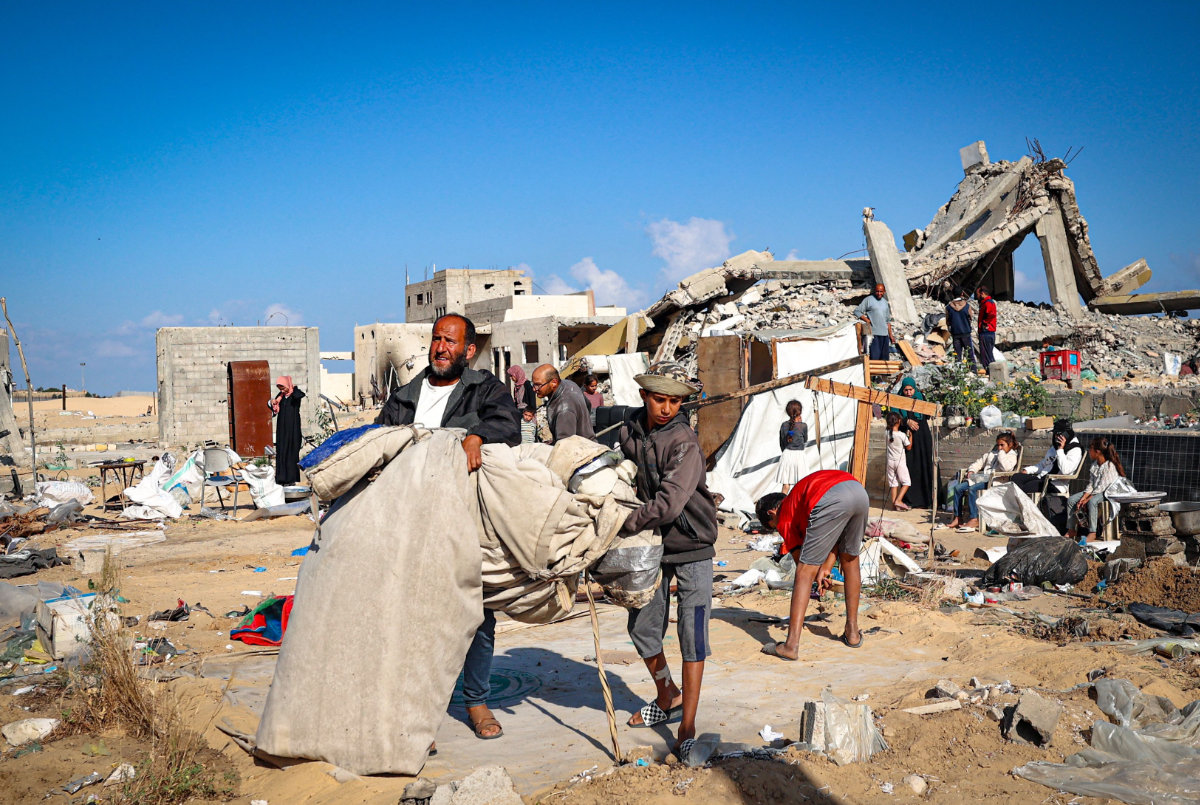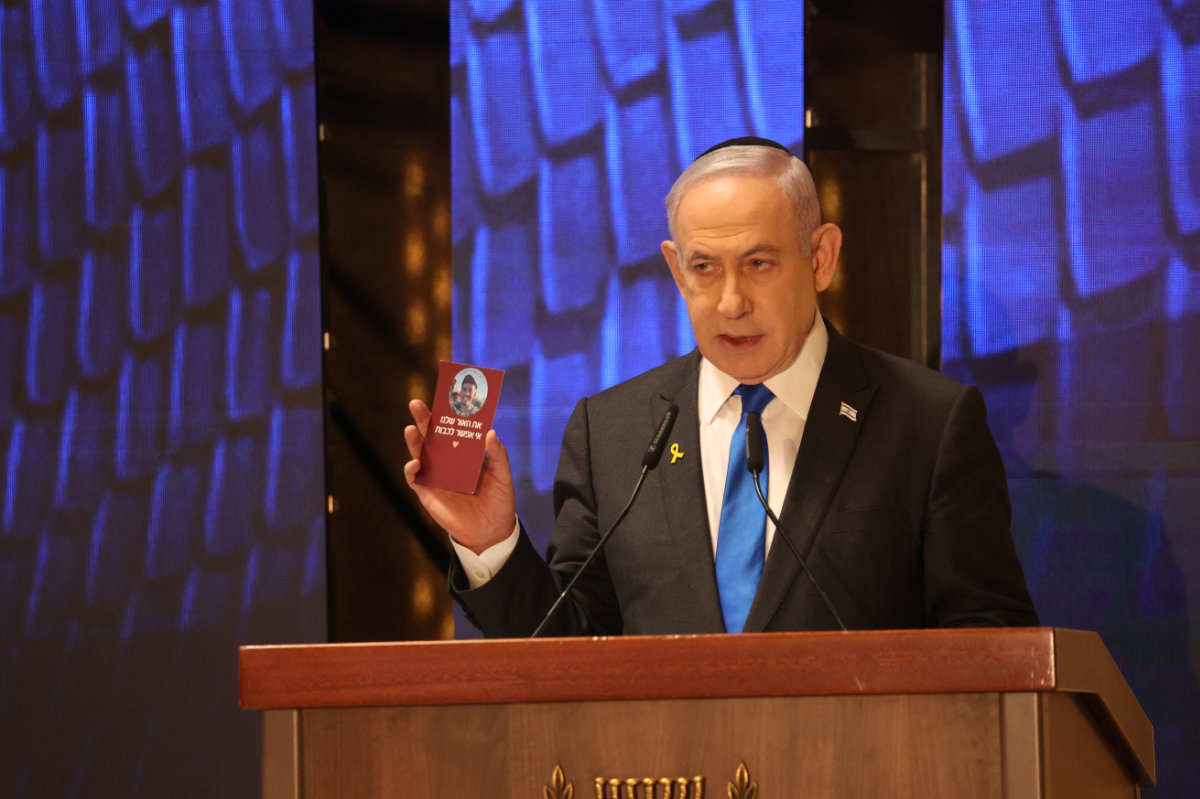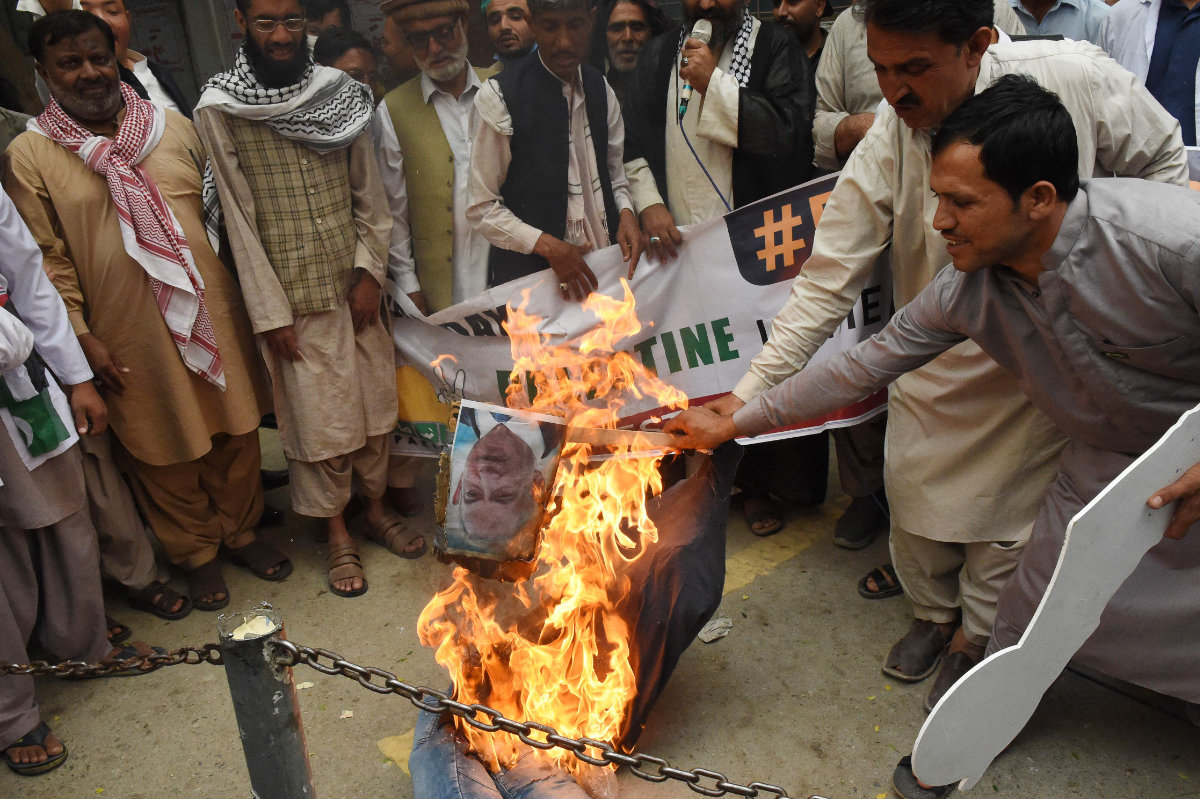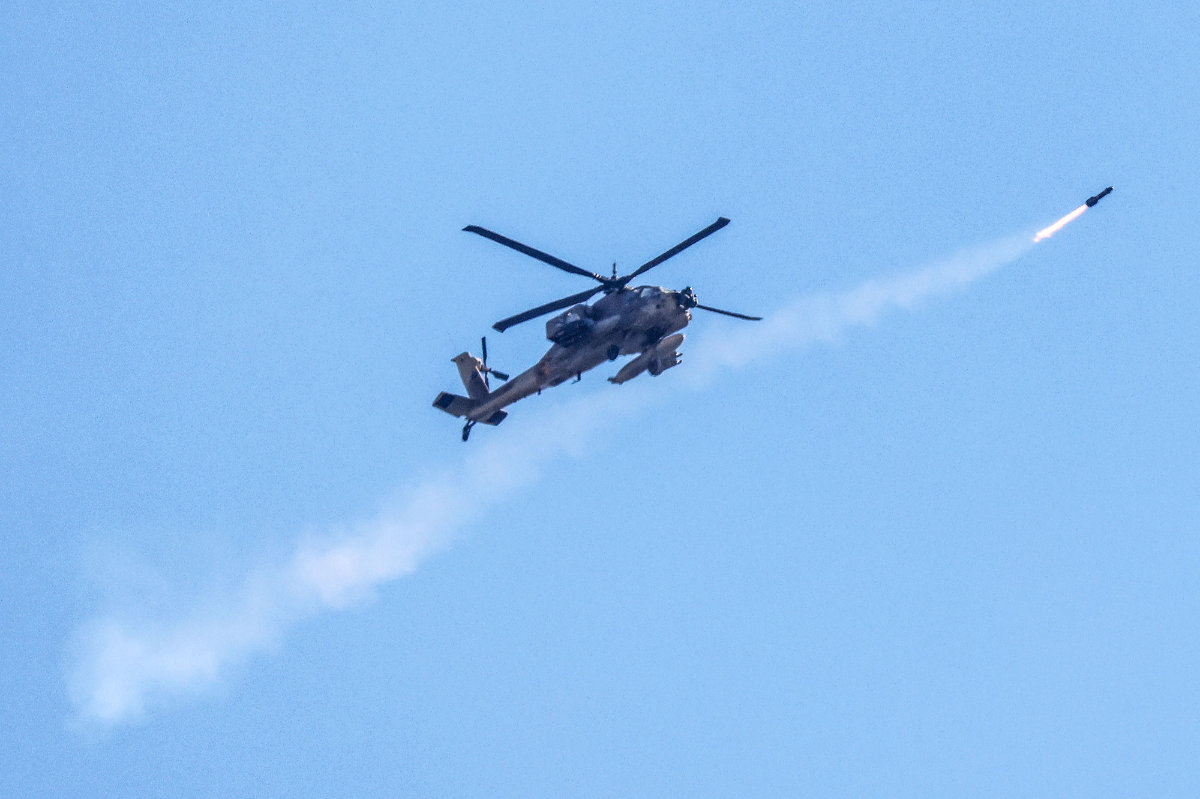RAFAH, Palestinian Territories: Israeli Prime Minister Benjamin Netanyahu on Wednesday insisted there was no “humanitarian catastrophe” in Rafah, even as hundreds of thousands fled the south Gaza city amid intense fighting.
Hamas meanwhile insisted it would take part in any decision on the post-war government of Gaza as Palestinians marked the 76th anniversary of the “Nakba,” when around 760,000 Palestinians fled or were driven from their homes during the 1948 creation of Israel.
Israeli forces have bombed Hamas militants around Gaza’s far-southern city of Rafah, but clashes have also flared again in northern and central areas which Israeli troops first entered months ago.
The upsurge in urban combat has fueled US warnings that Israel, which launched its war after the October 7 Hamas attacks, risks being bogged down in years of counterinsurgency.
But despite previous threats by US President Joe Biden to withhold some arms deliveries over Netanyahu’s insistence on attacking Rafah, his administration informed Congress on Tuesday of a new $1 billion weapons package for Israel, official sources told AFP.
The European Union urged Israel to end its military operation in Rafah “immediately,” warning failure to do so would “inevitably put a heavy strain” on ties with the bloc.
But even as he announced that hundreds of thousands had been “evacuated,” Netanyahu insisted there was no humanitarian crisis in Rafah.

Displaced Palestinians pack their belongings after dismantling their tents before leaving an unsafe area in Rafah on May 15, 2024, as Israeli forces continued to battle and bomb Hamas militants around the southern Gaza Strip city. (AFP)
“Our responsible efforts are bearing fruit. So far, in Rafah, close to half a million people have been evacuated from the combat zones. The humanitarian catastrophe that was spoken about did not materialize, nor will it,” he said.
The United Nations agency for Palestinian refugees, UNWRA, meanwhile said “600K people have fled Rafah since military operations intensified.”
Nakba Day
The sight of desperate families carrying scant belongings through the ruins of war-scarred Gaza cities has evoked for many the events of the 1948 Nakba which translates from Arabic as “catastrophe.”
Hamas declared in a Nakba Day statement that “the ongoing suffering of millions of refugees inside Palestine and in the diaspora is directly attributed to the Zionist occupation.”
Hamas chief Ismail Haniyeh insisted meanwhile that the militant movement will be involved in deciding post-war rule in Gaza along with other Palestinian factions.
“We say that the Hamas movement is here to stay ... and it will be the movement and all national (Palestinian) factions who will decide the post-war rule in Gaza,” Haniyeh said in a televised address for Nakba.
He also said the fate of truce talks was uncertain because of Israel’s “insistence on occupying the Rafah crossing and on its expansion of the aggression” in the Palestinian territory.
“Any agreement must ensure a permanent ceasefire, comprehensive withdrawal (of Israeli forces) from all sectors of the Gaza Strip, a real deal for exchange of prisoners, the return of displaced persons, reconstruction and lifting the siege” of Gaza, Haniyeh said.
Thousands marched to mark the day in cities across the Israeli-occupied West Bank, waving Palestinian flags, wearing keffiyeh scarves and holding up symbolic keys as reminders of long-lost family homes.
Netanyahu has vowed to destroy Hamas and bring home hostages still held in Gaza.

“Our responsible efforts are bearing fruit. So far, in Rafah, close to half a million people have been evacuated from the combat zones. The humanitarian catastrophe that was spoken about did not materialize, nor will it,” he said.
The United Nations agency for Palestinian refugees, UNWRA, meanwhile said “600K people have fled Rafah since military operations intensified.”
In a Wednesday interview with CNBC, Netanyahu addressed the tensions with Biden over the offensive, saying: “Yes, we do have a disagreement on Gaza. Rather, on Rafah. But we have to do what we have to do.”
Washington has also repeatedly urged Israel to work on a post-war plan for Gaza and supports the goal of a two-state solution, which Netanyahu and his far-right allies strongly oppose.
US State Department spokesman Vedant Patel said without a political plan, Palestinian militants “will keep coming back” trapping all sides in “this continued cycle of violence.”
Israeli Defense Minister Yoav Gallant on Wednesday said he would “not agree to the establishment of an Israeli military administration in Gaza, Israel must not have civilian control over the Gaza Strip.”
The war broke out after Hamas’s October 7 attack on southern Israel which resulted in the deaths of more than 1,170 people, mostly civilians, according to an AFP tally of Israeli official figures.

Activists of the Palestine Foundation Balochistan burn an effigy of Israel's Prime Minister Benjamin Netanyahu during an anti-Israel protest in Quetta on May 15, 2024. (AFP)
The militants also seized about 250 hostages, 128 of whom Israel estimates remain in Gaza, including 36 the military says are dead.
Israel’s military retaliation has killed at least 35,233 people, mostly civilians, according to the Gaza health ministry, and an Israeli siege has brought dire food shortages and the threat of famine.
Clashes continue
The Israeli military said Wednesday its aircraft had “struck and eliminated approximately 80 terror targets” including military compounds, missile launchers and weapons depots.
It also reported battles in eastern Rafah and in Jabalia in northern Gaza, where it said it had killed militants, adding troops were also fighting in the Zeitun area.

An Israeli Air Force attack helicopter fires a missile while flying over the Palestinian territory on May 15, 2024. (AFP)
Hamas’s armed wing also reported its fighters were clashing with troops in the Jabalia area, much of which has been reduced to rubble.
At least five people were killed, including a woman and her child, in two Israeli air strikes on Gaza City overnight, Gaza’s civil defense agency said.
At the city’s Al-Ahli hospital, a wounded man, his bare chest smeared with blood, lay on a cot while outside several men placed a shrouded corpse in the shade of a tree.
Sporadic aid deliveries into Gaza by truck have slowed to a trickle since Israeli forces took control of the Gaza side of the Rafah crossing with Egypt last week.
A UK delivery of 100 tons of temporary shelter kits left Cyprus Wednesday on its way to a US-built pier in Gaza, Britain said.
Another convoy carrying humanitarian relief goods was ransacked by Israeli right-wing activists on Monday after it had crossed from Jordan through the West Bank.






























